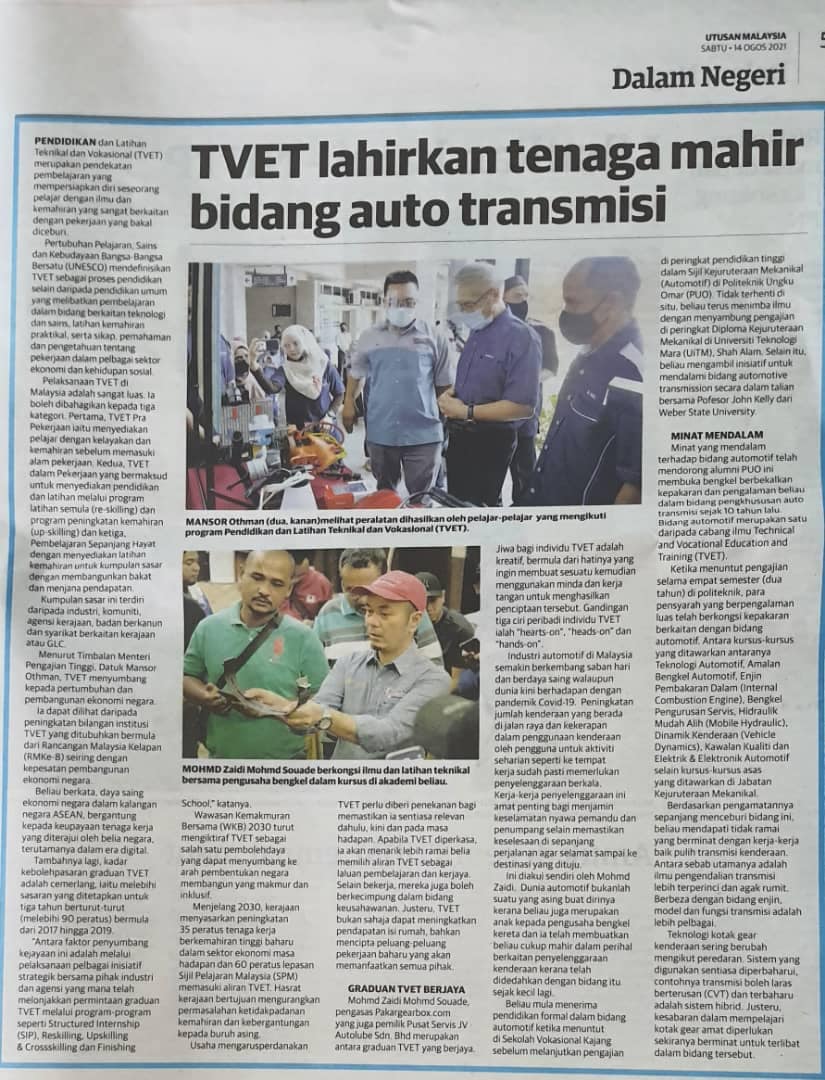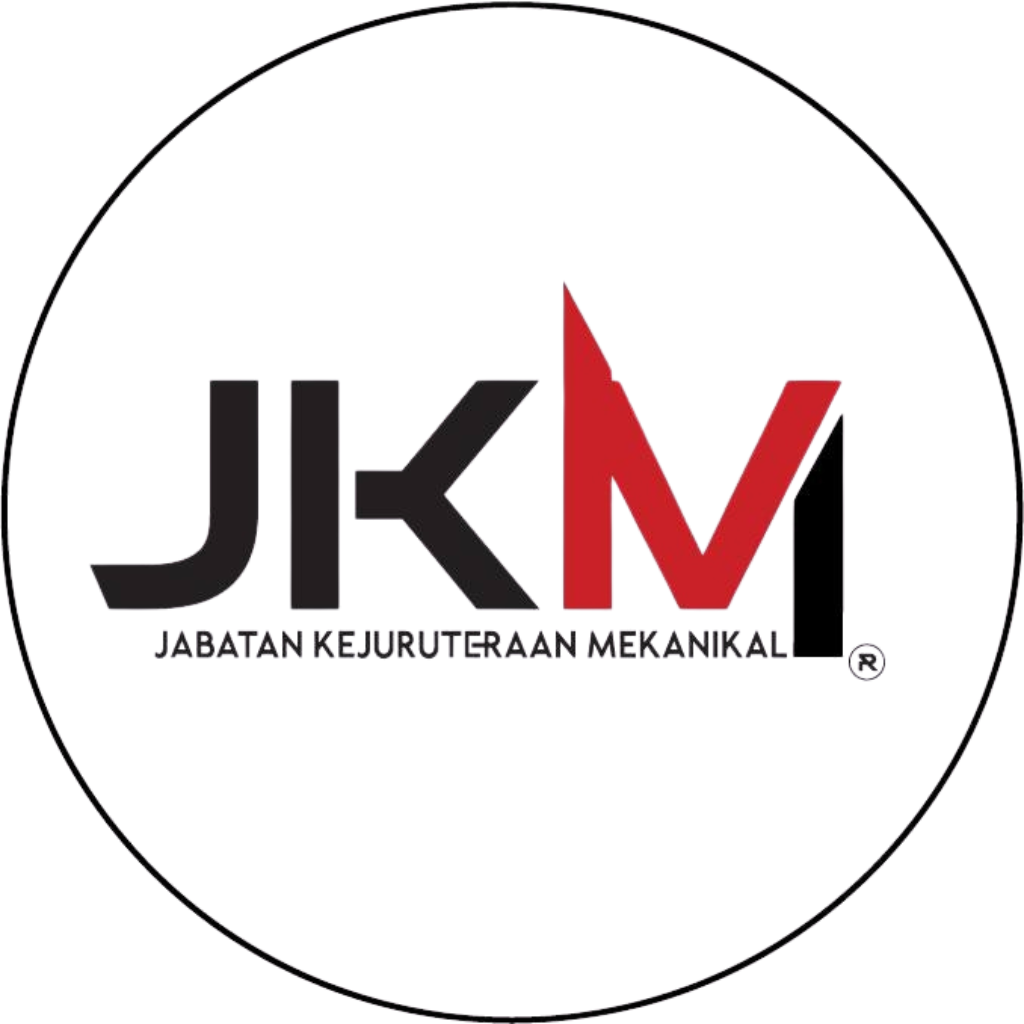
Diploma in Mechanical Engineering (Automotive)

SYNOPSIS
The Diploma in Mechanical Engineering (Automotive) programme is designed to
produced holistic graduates that have knowledge and competent skills in the field of
mechanical engineering with added specialization subjects in the automotive
engineering to fulfil the demand of workers in engineering sector. The programme
structure focusses on the area of Solid Mechanics, Statics & Dynamics,
Thermodynamics & Heat Transfer, Fluid Mechanics, Materials, Mechanical Design,
Workshop Practices, Manufacturing, Instrumentation & Control, Mechanical
Maintenance, Electrical & Electronic Technology, Vehicle system, Vehicle Technology
and Workshop Practice & Management.
JOB PROSPECT
This programme provides the knowledge and skills in Mechanical Engineering (Automotive) field that can be applied to a broad range of careers in Mechanical Engineering and Automotive Engineering. The knowledge and skills that the students acquire from the programme will enable them to participate in the job market as:
a. Assistant Engineer
b. Service Advisor
c. Technical Assistant
d. Quality Officer
e. After Sales Service Officer
f. Sales Executive
g. Technical Instructor or Lecturer
h. Technical Specialist
i. Workshop supervisor
j. Factory Supervisor
k. Team Leader Service Advisor
l. Service Assistant Manager
m. Service Manager
n. Entrepreneur
POLYTECHNIC VISION
To be the Leading-Edge TVET Institution.
POLYTECHNIC MISSION
a. To provide wide access to quality and recognized TVET programmes.
b. To empower communities through lifelong learning.
c. To develop holistic, entrepreneurial and balanced graduates.
d. To capitalise on smart partnership with stakeholders.
EDUCATIONAL GOAL
To produce holistic and competent TVET graduates capable of contributing to the
nation development.
PROGRAMME AIM
The programme believes that every individual has potential and the programme aims to
develop adaptable and responsible Senior Assistant Mechanical Engineers to support
government aspiration to increase workforce in engineering related field.
PROGRAMME EDUCATIONAL OBJECTIVES (PEO)
The Diploma in Mechanical Engineering (Automotive) programme should produce balanced and competent TVET workers who are:
PEO1 : equipped with industry-relevant knowledge and skills in mechanical engineering field
PEO2 : engaging on lifelong and continuous learning to enhance knowledge and skills
PEO3 : instilled with entrepreneurial skills and mind set in the real working environment
PEO4 : established strong linkage with society and players in the industry
PROGRAMME LEARNING OUTCOMES (PLO)
Upon completion of the programme, students should be able to:
PLO1: apply knowledge of applied mathematics, applied science, engineering fundamentals and an engineering specialisation as specified in DK1 to DK4 respectively to wide practical procedures and practices
PLO2: identify and analyse well-defined engineering problems reaching substantiated conclusions using codified methods of analysis specific to their field of activity (DK1 to DK4)
PLO3: design solutions for well-defined technical problems and assist with the
design of systems, components or processes to meet specified needs with appropriate consideration for public health and safety, cultural, societal, and
environmental considerations (DK5)
PLO4: conduct investigations of well-defined problems; locate and search relevant codes and catalogues, conduct standard tests and measurements
PLO5: apply appropriate techniques, resources, and modern engineering and IT tools to well-defined engineering problems, with an awareness of the limitations (DK6)
PLO6: demonstrate knowledge of the societal, health, safety, legal and cultural issues and the consequent responsibilities relevant to engineering technician practice and solutions to well-defined engineering problems (DK7)
PLO7: understand and evaluate the sustainability and impact of engineering technician work in the solution of well-defined engineering problems in societal and environmental contexts (DK7)
PLO8: understand and commit to professional ethics and responsibilities and norms of technician practice
PLO9: function effectively as an individual, and as a member in diverse technical teams
PLO10: communicate effectively on well-defined engineering activities with the engineering community and with society at large, by being able to comprehend the work of others, document their own work, and give and receive clear instructions
PLO11: demonstrate knowledge and understanding of engineering management principles and apply these to one's own work, as a member or leader in a technical team and to manage projects in multidisciplinary environments
PLO12: recognise the need for, and have the ability to engage in independent updating
in the context of specialised technical knowledge
